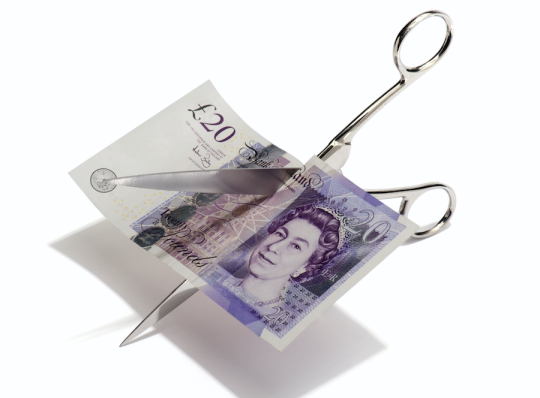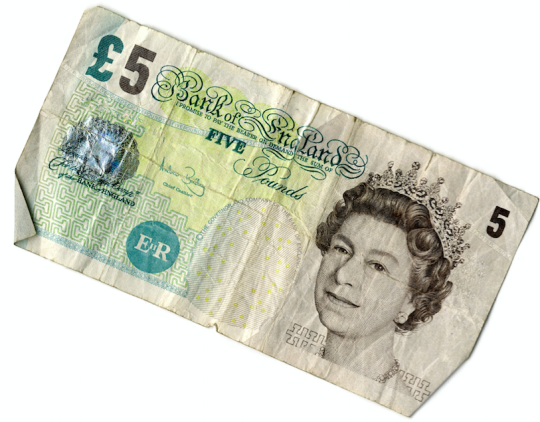Is It Really Treason To Rip Up British Money?

A popular pub trivia ‘fact’ says you can be arrested for destroying money in Britain as it’s completely illegal - and even an act of treason.
But is this really a fact - can you be handcuffed and placed in a prison cell for taking a five or ten pound note and ripping it to shreds? Or is it simply nothing more than an urban myth?
As it turns out, there are elements of truth in it but also a lot of falsehoods that may mean a few pub quizzes will have to be ripped up themselves if they tell you definitely that it’s against the law.
Police might take a dim view to you tearing up banknotes in front of them - and the Queen might take an even dimmer view as it’s her head you’re destroying - but they can’t arrest you.
In fact, it is not illegal to destroy money, according to the Currency and Bank Notes Act 1928 - however, it IS illegal to deface a banknote by printing, stamping or writing on it.
This may sound bizarre but there is a valid reason behind this thinking - once money is destroyed by tearing it up or setting it on fire, it is gone for good.

Not around for long: Five pound notes have an average lifespan of one year (Rex)
There’s no coming back from that - indeed the £5 note has an average lifespan of just a year, according to the Bank of England.
However, if a note is defaced then there may be an attempt to keep it in circulation - and that could mean pictures of Her Majesty with a comedy moustache or a scribbled face still being used to pay for your weekly shop.
Apparently the law takes a very dim view of that and the penalty could reach as high as £200.
There is precedent for this in the shape of art pranksters The K Foundation, who got away scot free with casually burning £1 million in 1994.
However, they had previously defaced another £1 million-worth of £50 notes by nailing them to a wall - which saw them slapped with a £9,000 fine and an extra £500 reprinting costs.
Coinage Act: Destroying coins could get you into a little trouble (Rex)
When it comes to coins, things are slightly different, and little more complex.
The Coinage Act 1971 made it an offence to destroy a metal coin that has been current in the UK since 1969, unless a licence to do so has been granted by the Treasury.
You can also get into trouble if you destroy or drill into a coin if the intent is to defraud - however, if you just wanted to wear a penny round your neck in some kind of fashion statement, then you’re unlikely to have an arrest warrant put out in your name.
In terms of treason, there is nothing in various Treason Acts over the years that state that you can be charged for anything to do with destroying money - killing the Queen or other officials tends to be the main no-go areas if you don’t want to fall foul of the law in that regard.
So no, you won’t go to prison for screwing up a £50 note and ripping it apart - why you’d want to do that in the first place is probably more cause for concern.
Top pic: Rex

 Yahoo News
Yahoo News 

